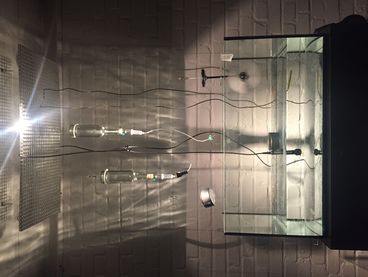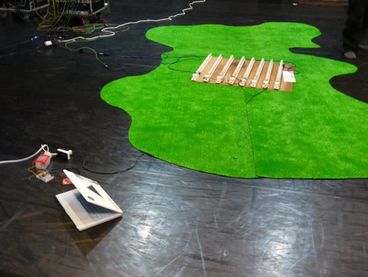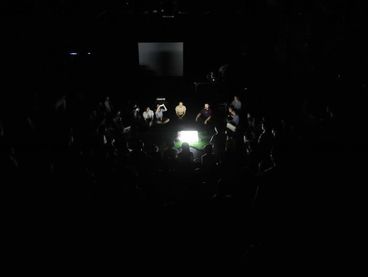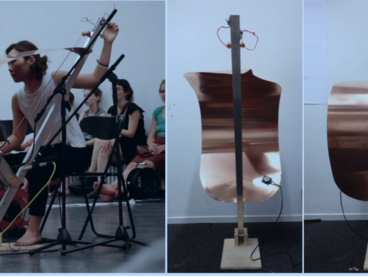Klanglabor: fish & flash
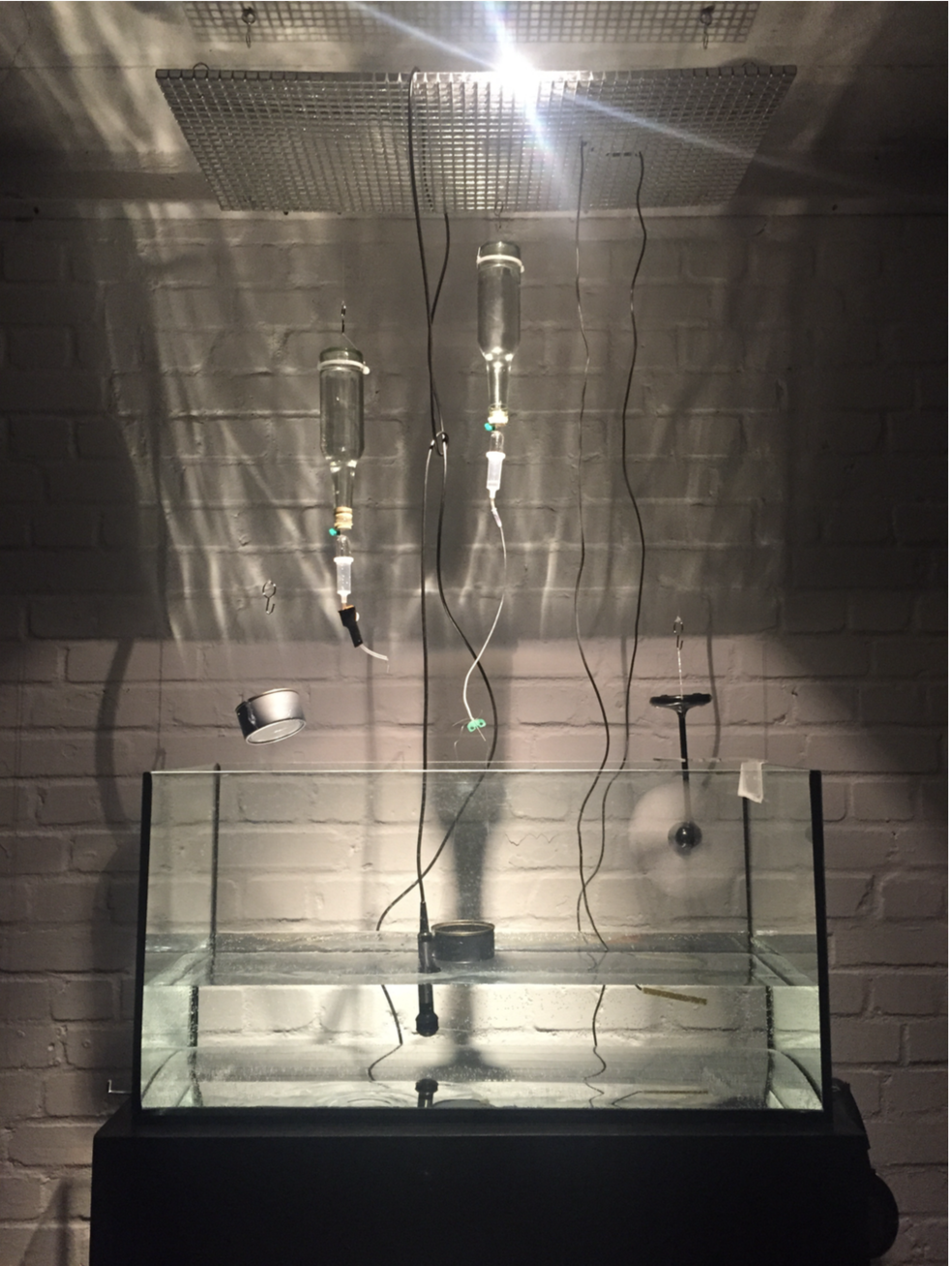
Mit Beiträgen von Ali Chakav, Sebastian Lehmann, Dawid Liftinger, Thomas Meckel, Andreas Niegl, Jiyun Park, Max Mauro Schmid, Hye Young Sin, Dora Tomic sowie dem syntheszing sound collective (Sophia Bauer, Sebastian Lehmann, Navid Nazavi, Andreas Niegl, Sybella Perry, Max Mauro Schmid, Lilian Villalba)
Line-Up (Die Anfangszeit der einzelnen Performances kann sich verschieben)
Donnerstag, 27. Juli
19 bis 21 Uhr, Performances
Dawid Liftinger: SOUND AND LIGHT
Dora Tomic: REVENIO
21 bis 22 Uhr
Hye Young Sin: SITUATION (Installation)
Freitag 28. Juli
16 bis 17 Uhr, Hye Young Sin: SITUATION (Installation)
17 bis 19 Uhr, Performances
Max Mauro Schmid: Binary Beach
Jiyun Park: Selbstgebautes Instrument
Sebastian Lehmann & Thomas Meckel:
CREATIVE ECONOMY I - V (Talk)
SE CURE - DER FILM (Screening)
Samstag 29. Juli
16 bis 17 Uhr, Hye Young Sin: SITUATION (Installation)
17 bis 19 Uhr, Performances
Ali Chakav: probability of occurrence
Andreas Niegl: Grave/Chronic
the syntheszing sound collective
"Licht und Ton" von Dawid Liftinger
Audio-visuelle Performance / Installation
"Licht und Ton" ist eine konzentrierte visuelle und auditive Performance bzw. Installation.
Leuchtstoffröhren werden ber ein digitales Interface via Software, Arduino und Relais, ein- und
ausgeschalten. Der Klang/die Geräusche der Leuchtstoffröhren, genau genommen von den Startern,
werden via Kontaktmikrofone abgenommen, gemischt und verstärkt im Raum wiedergegeben. Die
Zuschauer werden gebeten sich in einem Kreis rund um die Leuchtstoffröhren zu setzen, ähnlich wie
um ein Lagerfeuer. Die Frequenz das Ein- bzw. Ausschalten der Röhren wird kontinuierlich erhöht, bis
sie scheinbar zerstört werden. Mit dem Abschalten der Leuchtstoffröhren ist die Performance
beendet.
Komponenten/Materialien: 10 Leuchtstoffröhren, Arduino, Relais, Mikrofone
"Selbstgebautes Instrument" von Jiyun Park
Sound Performance
This Project is built in january, 2017 and I keep developing by experimenting with different stuffs. It is focusing on a spectrum of sounds by an experimental instrument which is composed of strings and a metallic sound box, producing overtones, resonances and feedback. It is improvisation sound performance by a microphone and a bow. An idea which was a trigger to start this project, came from getting over an typical asthetic of classic music and making own sound of materials. During a performance, sound from the instrument can be mostly controlled, but there is unpredictable part which is always chageable despends on relation of metal and microphone and space of stage. Each of materials which composed of the intrument are important factors to find vareity spectrum of sound. The instrument is still developing with electronic equipments, for example, trasnducer, mixer and programming as well. It is interesting experimental sound performance by listening an ambiguous boundary between electronic and nature of sound. Recently, I give prominence to sound of each objects and relationship between materials.
References: https://www.youtube.com/watch?v=7BeTkacf2RU
"Radio Alarm" von Marios Pavlou und Sybella Perry
Radio Alarm is a new web-radio platform at KHM, initiated by Marios Pavlou and Sybella Perry under the mentoring of Prof. Hans W.Koch.
The first series of shows will take place during the Rundgang,consisting of live coverage of performances from Klanglabor and other sound-based projects produced by KHM students.
The shows will be live-streamed on the official web radio page of Radio Alarm and audible at an open-air listening spot located in the Overstolzenhaus garden of the KHM Library.
"Situation" von
Hye Young Sin
Sound Installation
This project starts with a simple imagination: "If one listens to rain drops under water, how would it
sound like?"
The basic construction of this work consists of an aquarium, a hydrophone, animated objects
hanging above the water and two headphones. The hydrophone is designed to capture underwater
sounds according to a pressure change, but it also functions as a sound filter. Two bottles, one
ventilator and two tin-cans make different sounds through rhythmic and drone-like vibrations. Due
to the constant dripping the water level is slowly rising and the sound picked up by the hydrophone
changes accordingly. This sounding dynamics creates a distinctive sonic environment that alters
through time.



